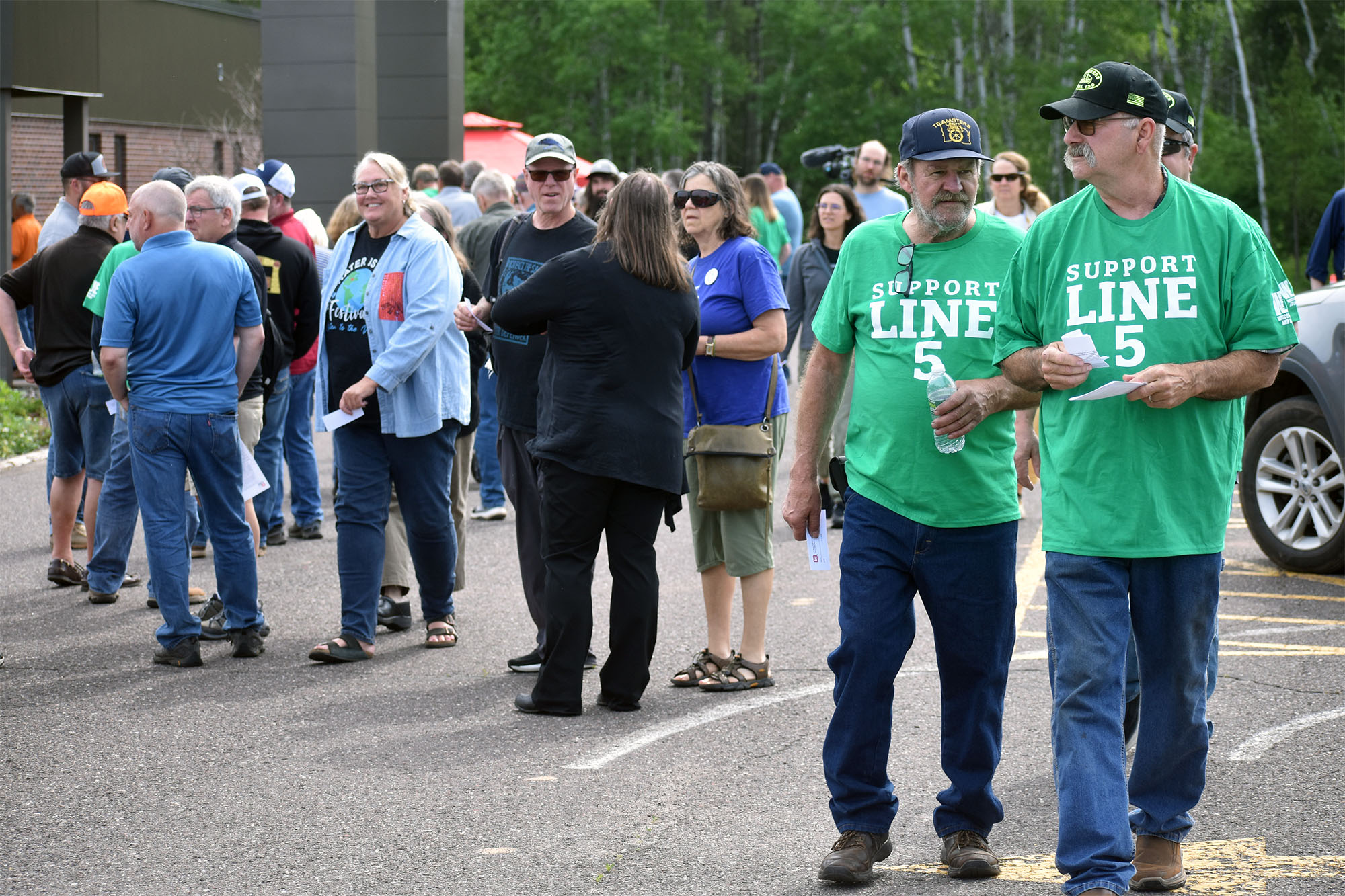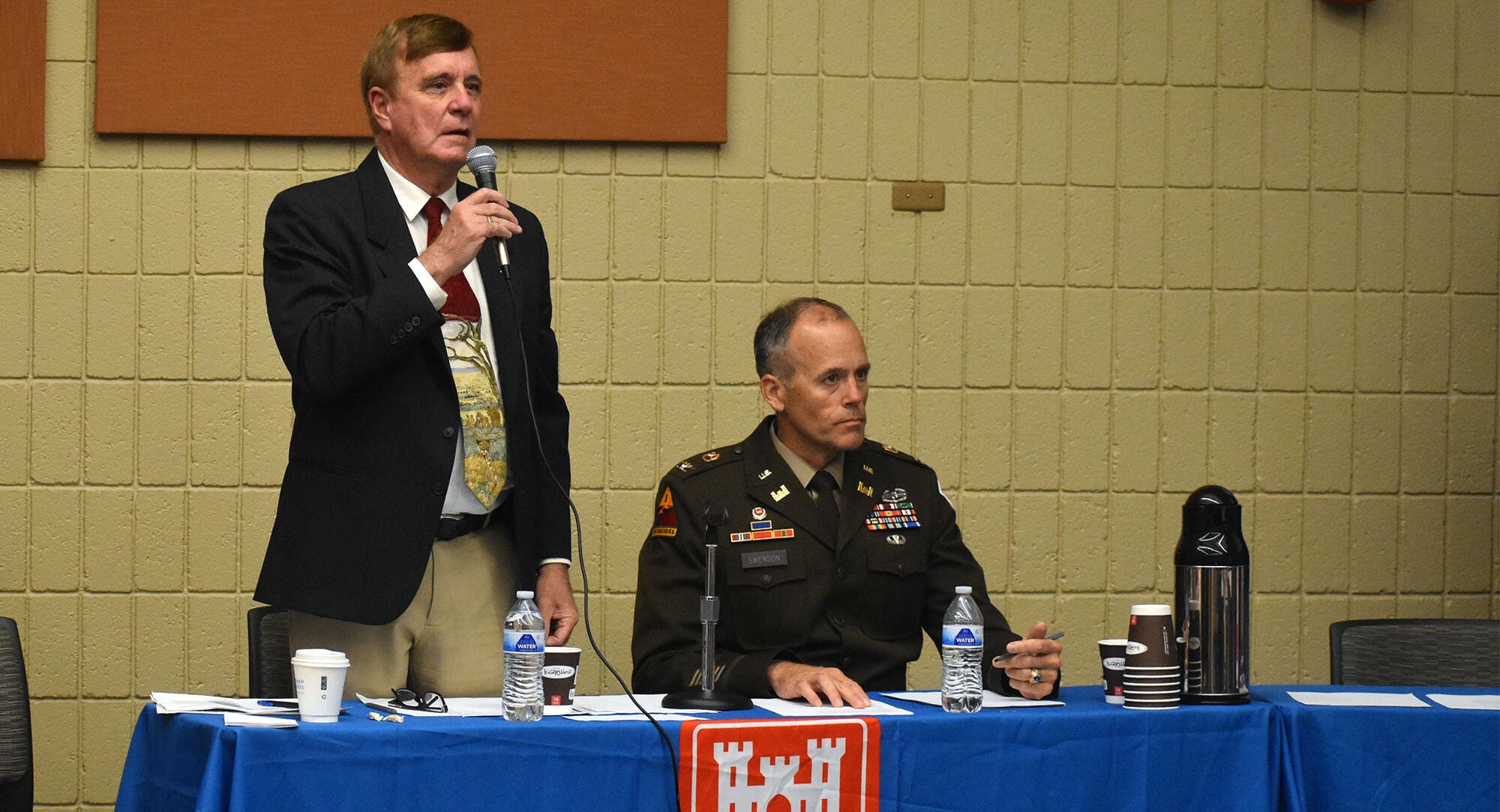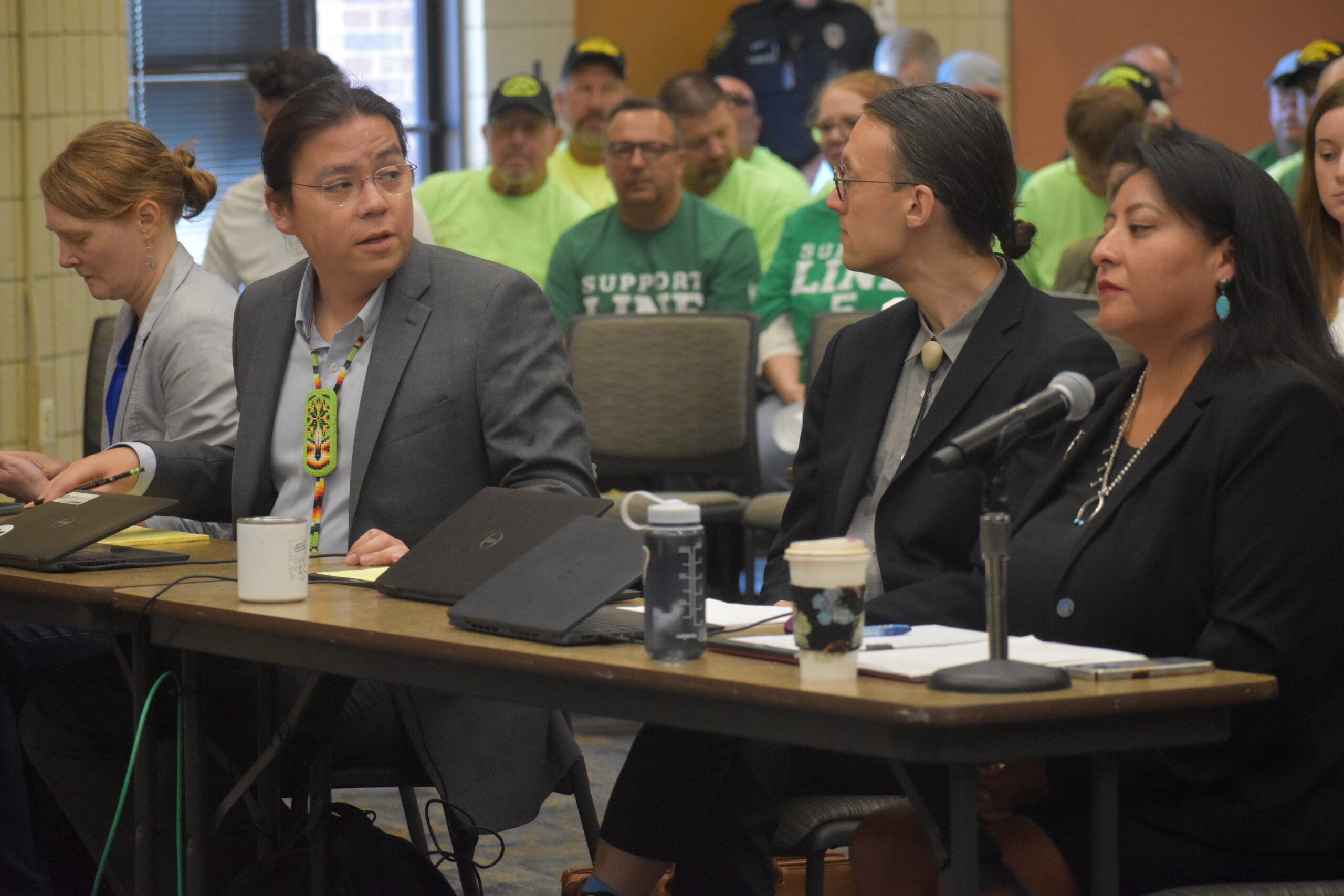At least 135 people registered to weigh in on a Canadian energy firm’s proposal to reroute an oil and gas pipeline around a northern Wisconsin tribe’s reservation during a public hearing in Ashland on Tuesday.
Canadian firm Enbridge is proposing a $450 million plan to build a new 30-inch segment of Line 5, which carries up to 23 million gallons of oil and natural gas liquids daily. The new stretch of pipe would run 41 miles around the reservation of the Bad River Band of Lake Superior Chippewa in Ashland and Iron counties. The company proposed relocating the pipeline after the tribe sued Enbridge in federal court to shut down and remove Line 5 from 12 miles of tribal lands.
The Army Corps of Engineers held two sessions Tuesday as part of a hearing on its draft environmental assessment of the proposed reroute. The agency is reviewing the company’s application for a permit under the Clean Water Act. The Corps is regulating construction-related activities in federal waters affected by the project, as well as Enbridge’s proposal to drill underneath the White River.
Bad River Tribal Chair Robert Blanchard noted the tribe’s reservation is where wild rice and medicinal plants grow, as well as where the tribe has hunted and fished for hundreds of years. He said Enbridge’s plans to convert wetlands, blast bedrock and any potential spills would negatively affect their treaty rights to hunt, fish and gather for years to come.
“Everything on this planet has a spirit. The animals, the water, the plant life, even the grass you walk on has a spirit. We have spirit,” Blanchard said during the meeting. “We must treat and respect these spirits so as not to destroy them.”
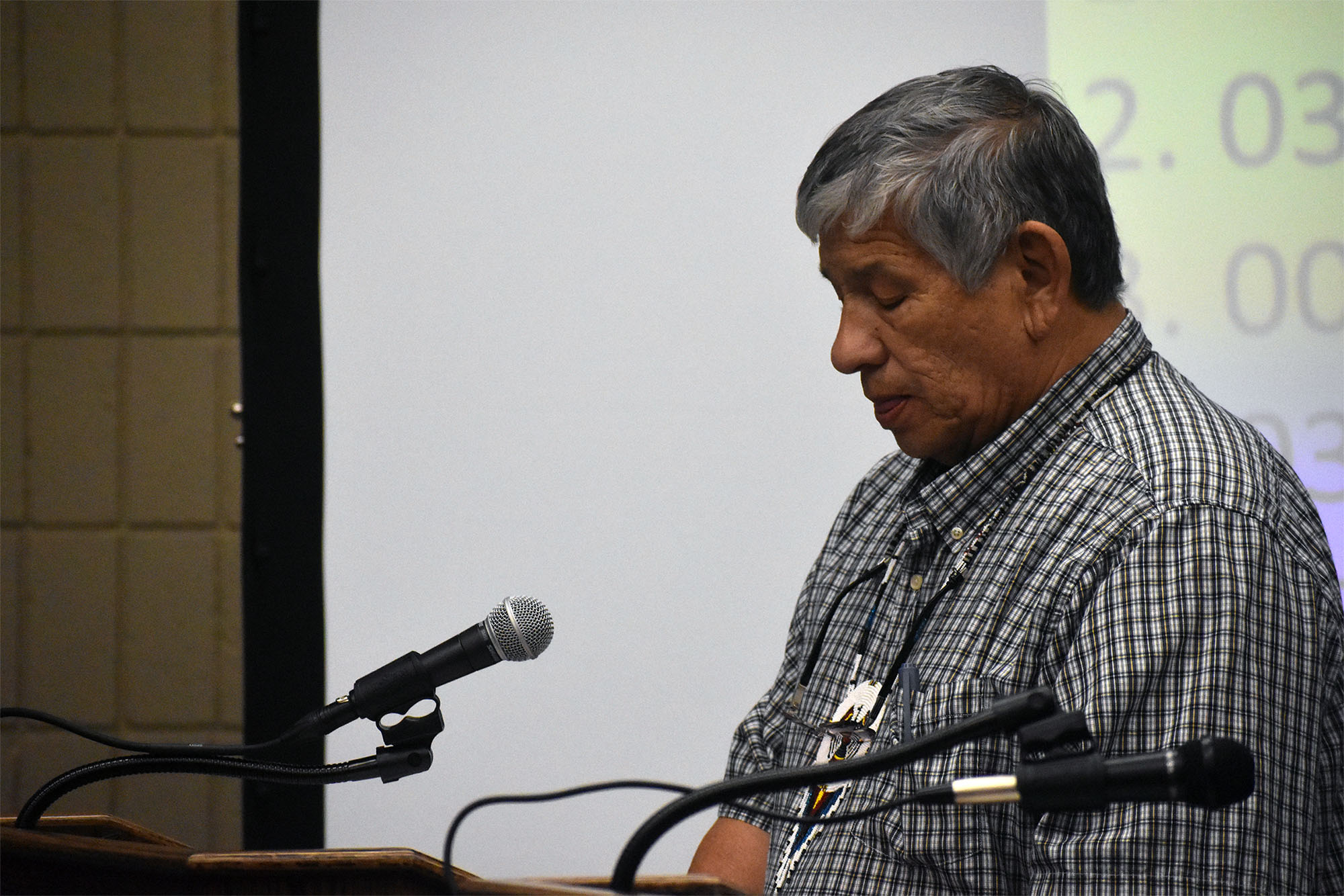
Construction of the new segment is expected to temporarily disturb 101.1 acres of wetlands and permanently fill 0.02 acres of wetlands. The project would also temporarily disturb two-tenths of an acre of streams or ditches at 72 waterway crossings.
Tribal officials say the Corps’ draft document relies on incomplete data. They add any proposed reroute should occur outside of the Bad River watershed. But not all tribal members are opposed, including Pat Nemec of Ashland. He said others are afraid to show support for Line 5 because they fear it will harm their businesses.
“I think doing the Line 5 reroute is the best thing for everybody overall,” Nemec said.
Sierra Club Wisconsin, Midwest Environmental Advocates and Clean Wisconsin voiced concerns about the project’s effects on the climate and the environment. Elizabeth Ward, director of Sierra Club Wisconsin, told WPR the threat of a spill poses too many risks to waterways.
“We saw with Line 3 how the construction alone can cause serious water issues,” Ward said.
Enbridge breached four aquifers during construction of the Line 3 replacement project in northern Minnesota. The Minnesota Department of Natural Resources reported nearly 300 million gallons of groundwater had been released after crews ruptured three of those aquifers while building the line. More than two dozen frac-outs, or accidental releases of drilling fluid, took place during the construction of Line 3, according to Minnesota Public Radio News.
News with a little more humanity
WPR’s “Wisconsin Today” newsletter keeps you connected to the state you love without feeling overwhelmed. No paywall. No agenda. No corporate filter.
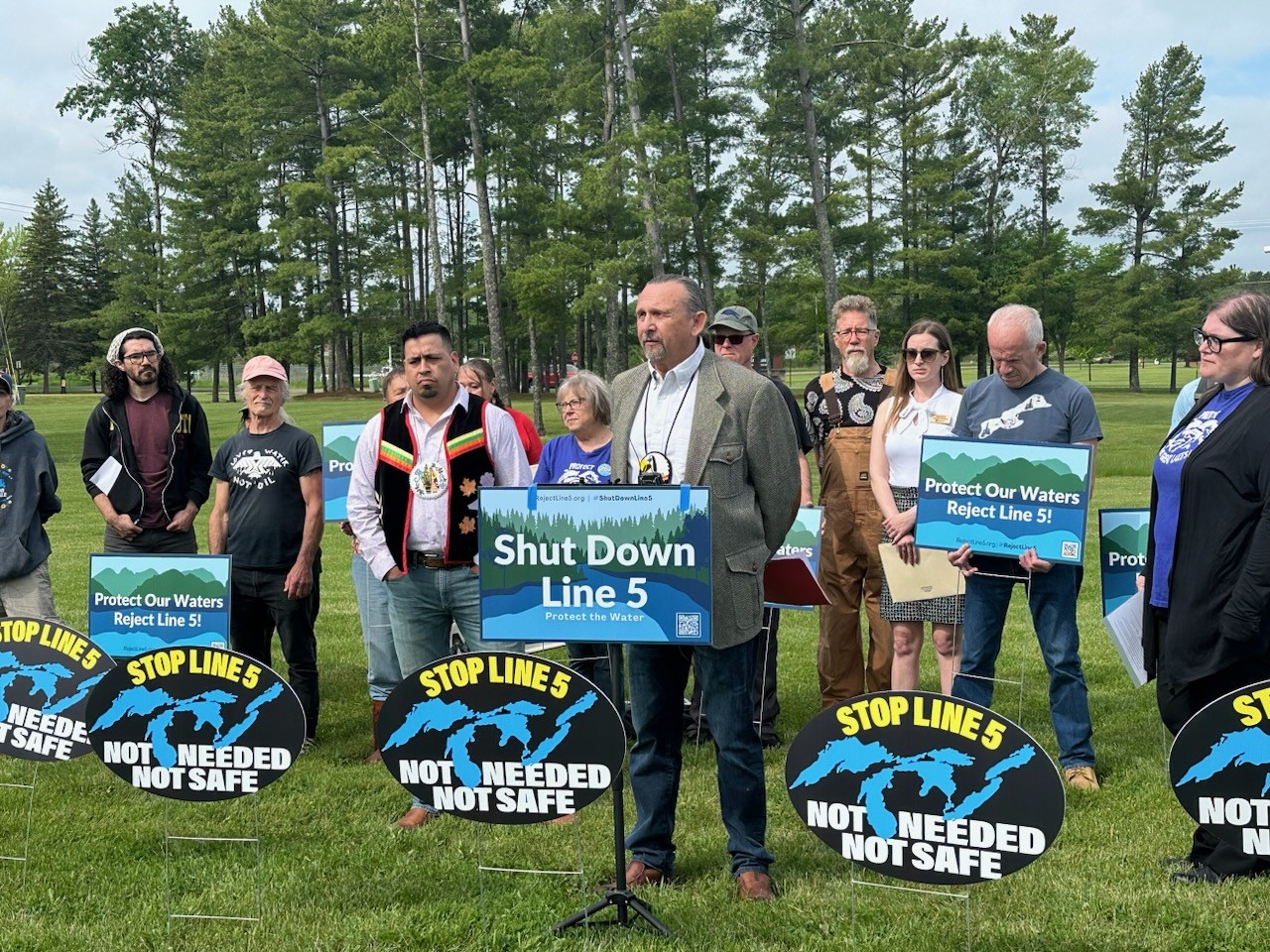
Others noted Line 5 has experienced more than 30 releases on land, spilling about 1 million gallons of oil. They also highlighted the company is responsible for the nation’s largest inland oil spills, including a 2010 spill that released more than 1.2 million gallons of oil into the Kalamazoo River.
Enbridge said it’s spent billions of dollars upgrading technology and safety protocols, learning from every incident. Even so, Wenipashtaabe Gokee, an Ashland resident and Red Cliff tribal member, called the reroute a slap in the face to Bad River.
“I can drink the water here right now. Let’s keep it that way,” she said.
Evan Feinauer, staff attorney for Clean Wisconsin, testified that wetlands impacted by the project provide critical habitat for plants and animals, as well as store water that reduces flooding. In the past decade, northern Wisconsin has witnessed three floods that are only supposed to occur once every 500 to 1,000 years.
“My belief is that the wetland impacts are going to be serious and profound and not avoided, minimized or mitigated for,” Feinauer said.
Following construction, about 34 acres of wetlands would be permanently cleared of trees or shrubs in the pipeline corridor for maintenance and inspection. The Corps’ draft assessment states about 67 acres would revert to its natural state after work is complete. Enbridge is proposing to purchase 33 wetland credits to offset the loss or conversion of wetlands.
While the project crosses 220 other waterways, the Corps doesn’t regulate those because they won’t be filled with material or considered navigable waters.
Jennifer Smith, director of tribal engagement for Enbridge, insisted the company will minimize effects on wetlands and waterways along the proposed reroute.
“A majority of the impacts are temporary during construction,” Smith said. “We are absolutely committed to restoring the natural environment back to how we found it.”
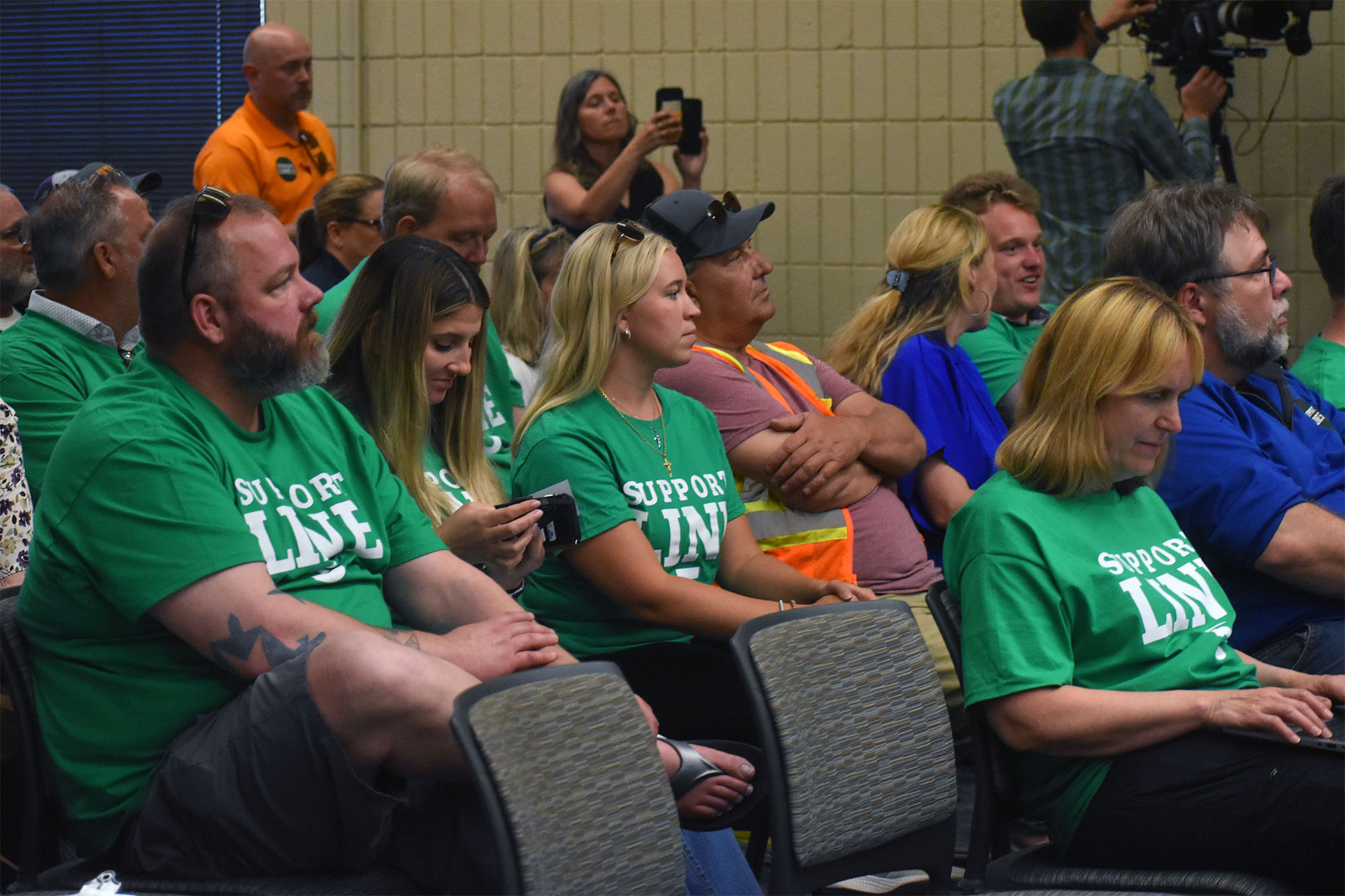
Line 5 is more than 70 years old, and it runs 645 miles from Superior across northern Wisconsin and Michigan to Sarnia, Ontario. Farm, business and labor groups along with Republican lawmakers spoke in favor of Enbridge’s proposed reroute.
Dan Olson is a Superior resident and business manager for the Laborers’ International Union of North America Local 1091 in Duluth. He touched on the project’s estimated $135 million economic impact. The proposed reroute is also anticipated to create around 700 jobs during construction.
“We have a workforce that will build this pipeline as safe as every step that Enbridge has taken along the way to ensure the communities make sure that the water is protected, the air is protected, the land is protected, the animals are protected, the people are protected,” Olson said.
Dennis Kaseno, a retired union worker from Cornucopia, said the region needs jobs.
“It’s going to put a lot of people to work and provide gas and oil for a lot of people that need it,” Kaseno said.
Craig Summerfield is senior director of environmental and energy policy for Wisconsin Manufacturers and Commerce, the state’s largest business group. He said Line 5 is critical for providing affordable, reliable energy to the region.
“It’s difficult to overstate the negative impacts of shutting down Line 5. If we shut down Line 5, a major propane supplier has warned it would close three refineries in the region, including one in Superior,” Summerfield said. “This would severely impact Wisconsin’s energy supply to say nothing of lost jobs.”
Northern Wisconsin lawmakers, including Republican state Sen. Romaine Quinn, said the project is expected to yield an extra $6.5 million in additional tax revenues for the state. If the project is not approved, he voiced concern it could result in thousands of trucks transporting products currently carried by Line 5.
“All we would be doing is making it more expensive and less safe to move the product,” Quinn said.
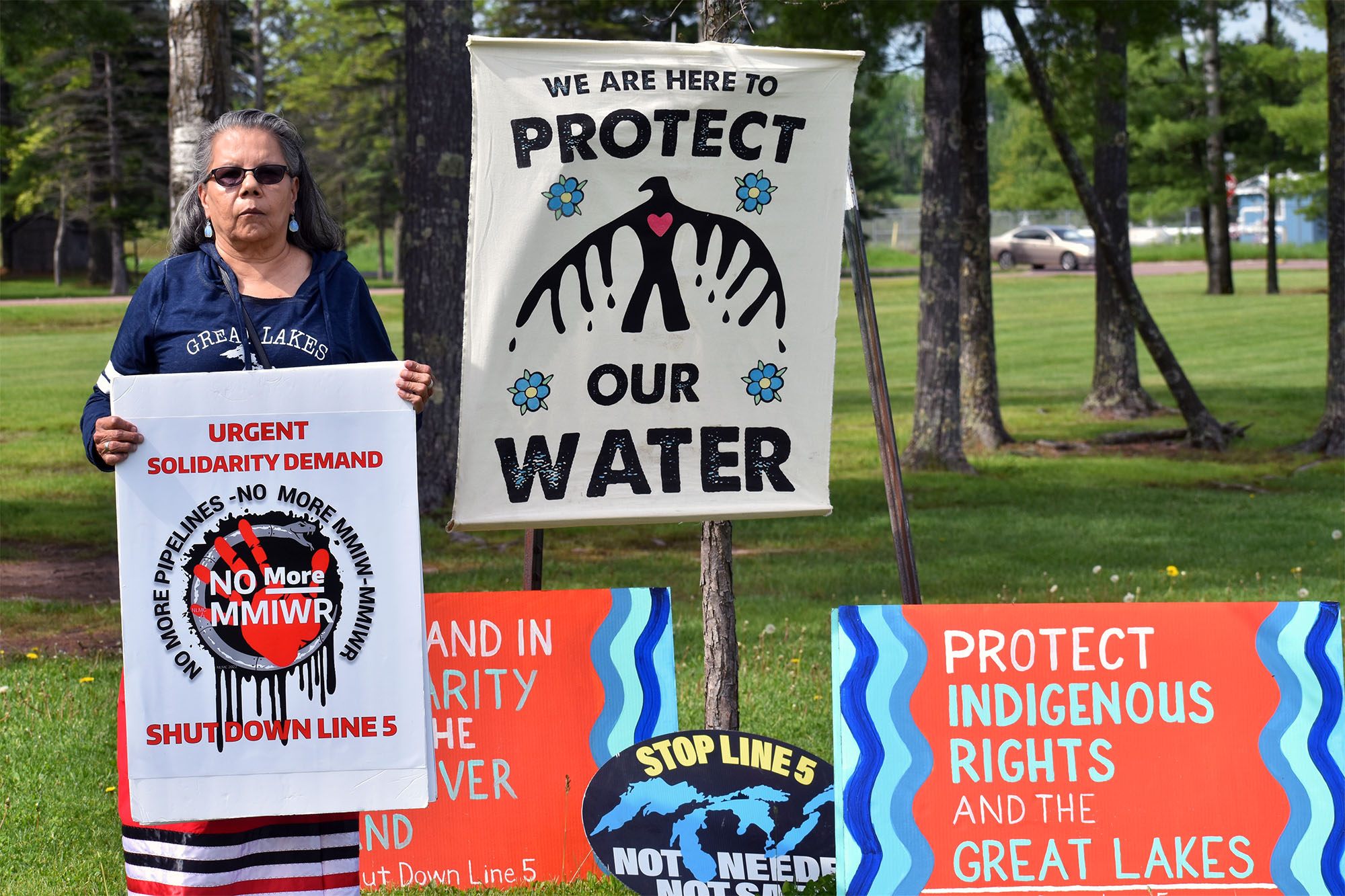
Others feared building the proposed reroute would put Indigenous women at risk, including Rene Ann Goodrich. A member of the tribe and the Native Lives Matter Coalition, Goodrich told WPR the extraction industry has contributed to the epidemic of missing and murdered Indigenous women.
“What’s perpetrated on our water and perpetrated on our lands is perpetrated against the people,” Goodrich said.
In 2021, two employees working on Enbridge’s Line 3 pipeline project were arrested in a sex trafficking sting. The company fired the workers, saying it has zero tolerance for illegal and exploitative actions.
If built, construction of Enbridge’s proposed reroute in northern Wisconsin is expected to last about a year. The Army Corps is accepting public comment on its draft assessment until July 5.
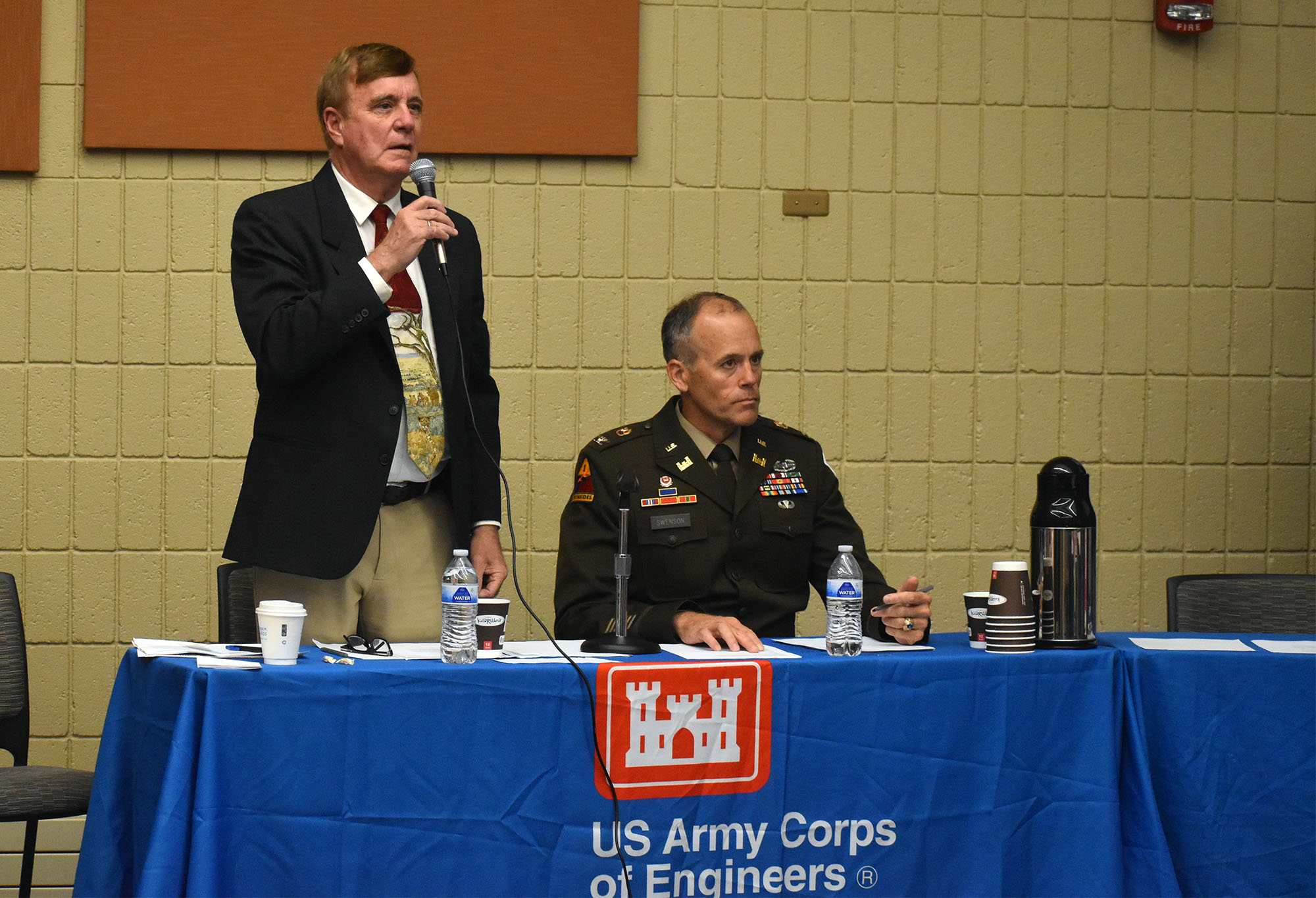
Federal court cases still playing out over fate of Line 5
Last year, U.S. District Judge William Conley ordered the company to pay $5.15 million for trespassing on the Bad River tribe’s lands where its pipeline easements expired, as well as shut down Line 5 where it’s illegally operating by mid-2026. Conley said that would give Enbridge time to obtain permits and build the reroute or allow the market to adjust. Both Enbridge and Bad River appealed the ruling to the Seventh Circuit Court of Appeals, which has yet to issue a ruling.
In April, the Biden administration urged a federal appeals panel to reconsider the lower court’s order that would shut down Line 5 on the Bad River tribe’s reservation within three years.
The federal government argued Conley’s ruling failed to adequately compensate the tribe. The U.S. Department of Justice said the case should be sent back for further review of a shutdown’s effects on the tribe’s treaty rights and trade relations between the U.S. and Canada.
Enbridge has said a shutdown would violate a 1977 treaty between the U.S. and Canada, as well as harm businesses and communities who rely on the pipeline. The Canadian government has invoked that treaty amid legal challenges to the pipeline’s operation in Wisconsin and Michigan. A group of 30 tribal nations, including Bad River, have urged President Joe Biden and his administration to support the tribe and treaty rights in the case.
The Corps is also conducting a separate environmental impact statement for Enbridge’s proposed $500 million tunnel in the Straits of Mackinac connecting Lakes Michigan and Huron.
Some people have called on the Corps to review both projects together under federal environmental law, but the agency said they’re not related closely enough to be considered as one. The Corps’ final decision on the project in the Straits isn’t expected until 2026.
Wisconsin Public Radio, © Copyright 2025, Board of Regents of the University of Wisconsin System and Wisconsin Educational Communications Board.

